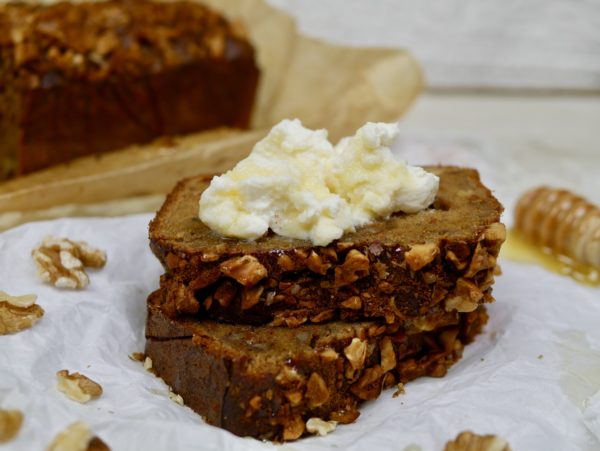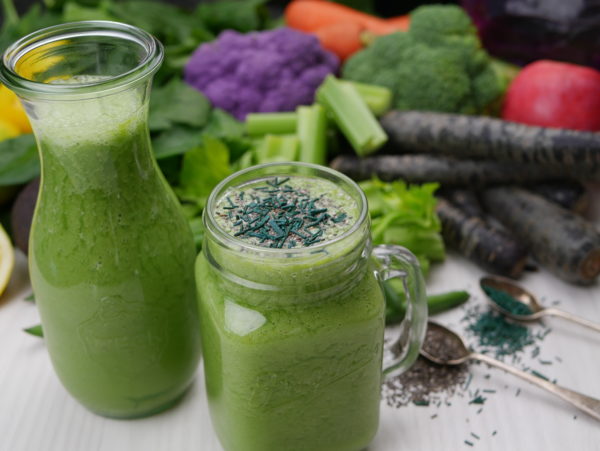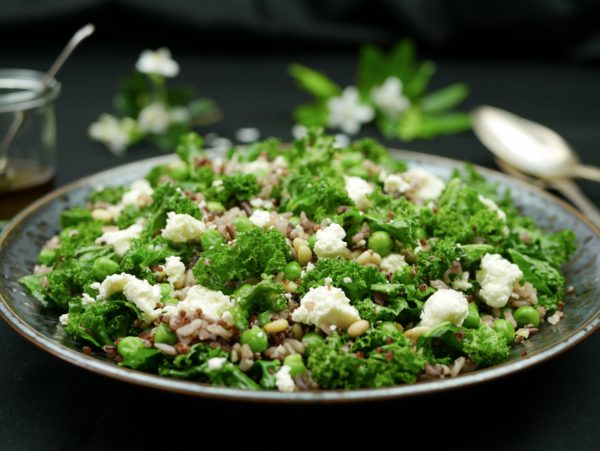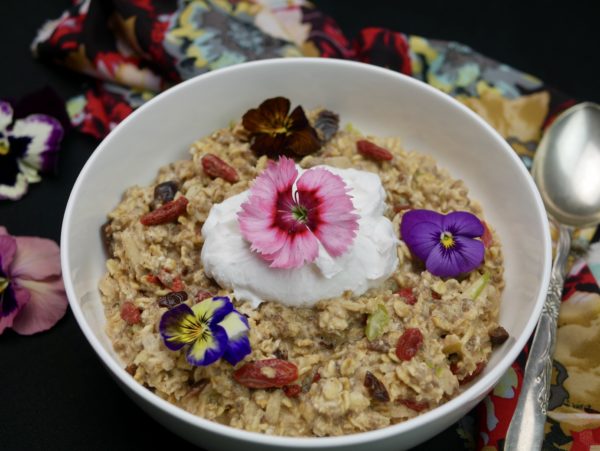Depression affects many people worldwide, so it’s vital we start looking after the health of our brains. Nutrition plays a major role in brain health, so we should be selecting foods that specifically nourish the brain. Certain types of food actually contain essential nutrients for good mental health, and deficiencies can worsen mental disorders such as depression. We need mood-boosting fatty acids, proteins, and a full range of micronutrients. The following are the important essential nutrients that helped keep me mentally well.
- Omega-3 Fatty Acids
Increase your omega-3 intake. Our brains are about 60 percent fat, so eating plenty of healthy fats (including anti-inflammatory omega-3 fatty acids) can help look after our brains. I believe this could be the number one nutrient for healthy brain function. I experienced a definite lift in my mood after two weeks of taking a tablespoon of cod liver oil daily and having seafood twice a week.
Sources: oily fish such as salmon, flaxseed oil, chia seeds, walnuts, cod liver oil
- Zinc
Zinc has a calming effect on the brain, as it enhances GABA
1 activity, but it can be depleted by high stress. Low levels can lead to mood swings, irritability, and depression. This mineral is important in the development of new brain cells and is necessary for the production of melatonin, the hormone that regulates the sleep-wake cycle.
Sources: eggs, beef, spinach, flaxseed, pumpkin seeds, cashews, oysters
1 GABA is an amino acid that acts as a neurotransmitter in the central nervous system. It inhibits nerve transmission in the brain thus calming activity.
- Folate
Vitamin B9/folate is instrumental in preventing depression and is crucial for a balanced mood and memory. Folate helps synthesise a molecule that protects the brain and maintains a healthy nervous system.
Sources: dark leafy greens, asparagus, okra, seeds, nuts, beets, avocados
- Iron
This essential element is responsible for carrying oxygen in your red blood cells and has a vital role in regulating mood. Lack of iron can cause irritability, fatigue, brain fog, and mood swings.
Sources: beef, pork, poultry, seafood, beans, spinach, dried apricots, prunes
- Magnesium
This mineral helps promote the growth of new brain cells and plays a key role in the formation of neurotransmitters, the chemicals that send messages between brain cells. A deficiency in magnesium weakens the brain and impacts many systems in the body, which can result in depression, apathy, fatigue, anxiety, and insomnia.
Sources: dark leafy greens, brown rice, oatmeal, cacao, almonds, pumpkin seeds, fish, beans, wholegrains, avocados, bananas, dark chocolate
- Vitamin B12
This B vitamin helps create neurotransmitters that are essential to positive mood. We can become deficient in B12 as we age, and low levels of this vitamin can put you at risk for depression.
Sources: fish, prawns, liver, eggs, red meat, vegan nutritional yeast
- Vitamin E
Getting enough of this antioxidant vitamin is vital for our brains to function well. Vitamin E protects our brain cells from damage due to inflammation, which can contribute to depression and age-related disease such as dementia.
Sources: dark leafy vegetables, almonds, sweet potatoes, avocados, sunflower seeds, pumpkin
- Water
This is a big one. Our brains need plenty of water to function properly. Even mild dehydration can quickly affect your mood. A sustained period of not drinking water can make us irritable, slow, lethargic, and depressed. Drink one and a half to two litres of water every day. Make it a priority.
Here are some of the top foods and ingredients to help you eat yourself happy:
- Vegetables, especially leafy greens like kale, spinach, silver beet, and rocket
- Fruit, especially berries such as blueberries, strawberries, and raspberries
- Nuts such as walnuts, almonds, cashews, and Brazil nuts
- Seafood, such as salmon, prawns, shrimp, and oily fish
- Sustainable and organic meat and poultry
- Eggs (organic)
- Healthy fats such as coconut, olive, and flaxseed oils, as well as nuts and avocados
- Fermented foods such as sauerkraut, kefir, kimchi, and kombucha (or take a high-quality probiotic)
What to Avoid
What we eat has a big impact on us, mentally as well as physically. There are foods that we might not even be aware of that are having a big impact on how we feel, and this can be more serious than just getting grouchy from overdoing it.
Refined Sugar
Have you ever eaten something made with sugar and “crashed” afterwards? Eating sugar puts you on a roller coaster of highs and lows from the excess amount of glucose in your blood, which is bad news for the brain. Symptoms of too much sugar can include irritability, insomnia, fatigue, night sweats, poor concentration, and low mood or depression. Lots of refined sugar depletes the mood-boosting B vitamins and offers very little nutritional value. This kind of sugar from sugar cane is found in processed foods like cookies, cakes, candy bars, ice cream, and so forth. Eat a little natural sugar from fruit and natural alternatives—for example, honey, dates, maple syrup, and stevia.
Processed Foods
If it comes in a box with a huge list of ingredients, don’t buy it! You were born to eat real food, so eat one-ingredient foods. Load up on vegetables, non-sugary fruits, nuts, seeds, seafood, good fats, and sustainably reared meat and poultry.
Gluten
Gluten can trigger inflammation in the body and brain. Removing gluten from your diet could help to improve your mood. In some people, gluten can also damage the gut lining, which means that you might not be absorbing essential nutrients critical to mood, like B vitamins, vitamin D, and zinc. I (Holly) removed gluten from my diet, and in less than three weeks, I noticed a substantial improvement in my mood. Now that I no longer have gluten, I’m more sensitive to it, so if I accidently have some, I feel the effects instantly: depressive feelings, anxiety, brain fog, and a sense of dread.
Dairy
A primal connection exists between your gut and your brain. Inflammation in the gut can be caused by food intolerances. Receptors in your gut and brain may react to the casein in dairy and create strong depressive symptoms.In saying this, dairy was a problem for me, but it may not be a problem for everyone. Our advice is to try eliminating dairy for one month and see how you feel. After that month, reintroduce some dairy and you will soon see if it has an effect on your mood or not.
You might want to remember Hippocrates’s advice to “let food be thy medicine”. Be proactive and make your diet a priority every day so you can fuel your mind and body to its greatest potential.
Our brains use a lot of energy and need sustained fuelling from good real food. While depression is not just caused by one factor, only doing this one thing (eating wholefoods) can make a huge difference to your brain health. What we eat has a lot of power in changing how we feel, look, and think. If you suffer from anxiety and depression, we encourage you to look at your stomach, not just your head. We recommend eating a diet made up of foods as natural and unprocessed as possible. Refer to the recipes on the Her Mind site for inspiration and good mind health.




